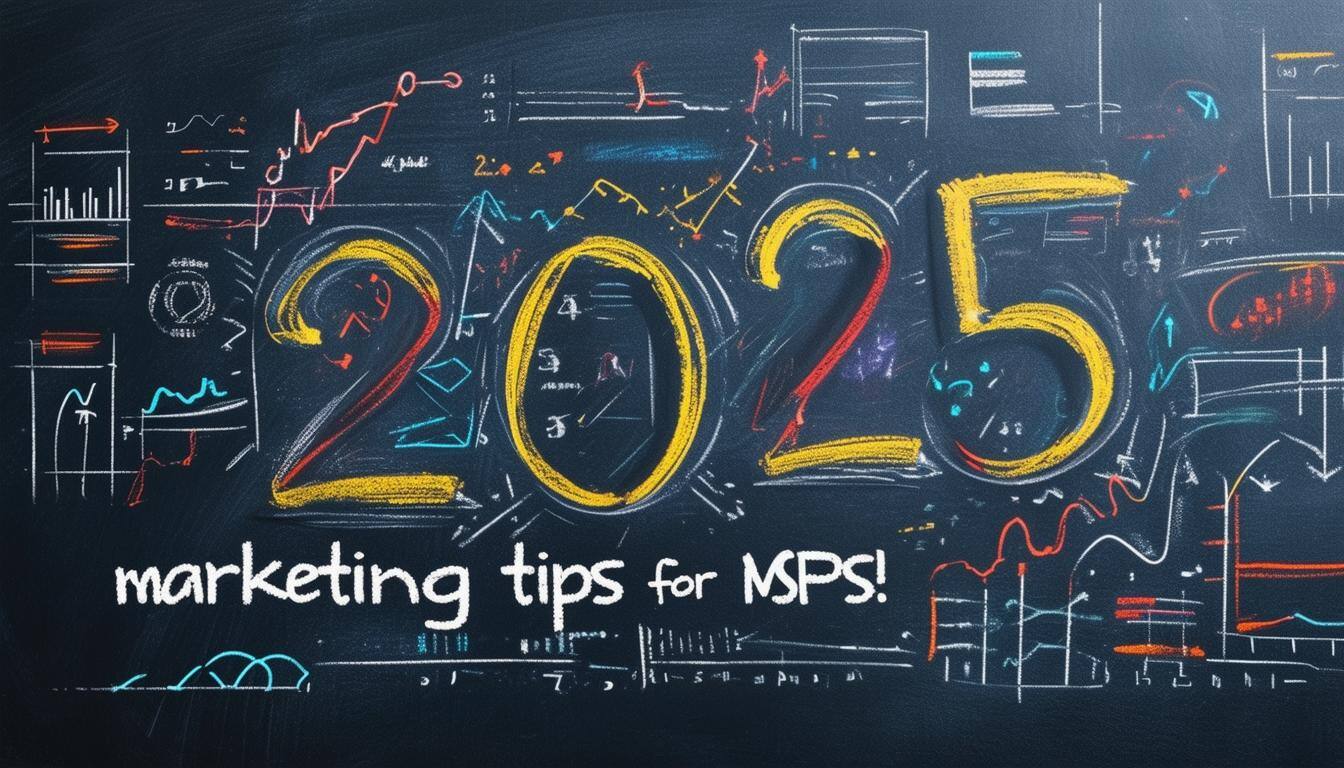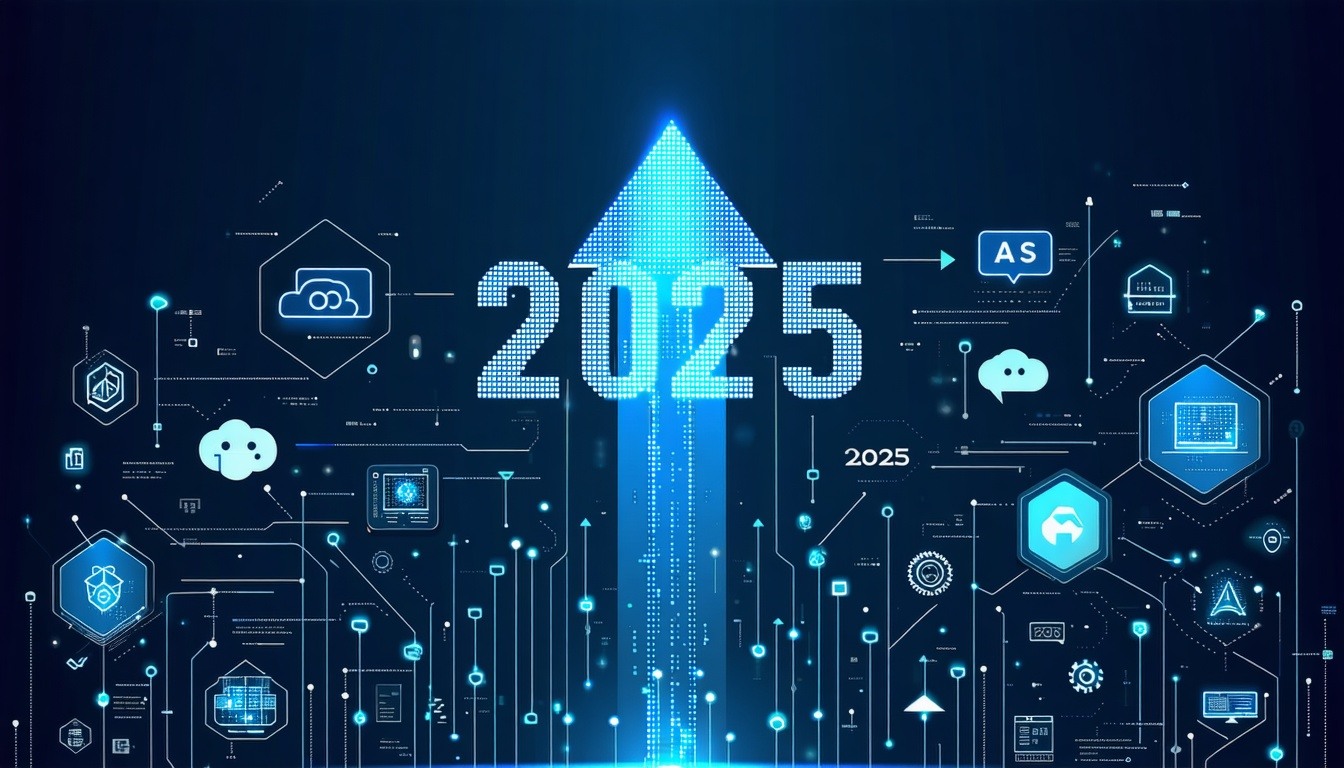Now more than ever, managed service providers (MSPs) face unique challenges in standing out and attracting ideal clients. How customers receive information and learn about products and services is fractured. You can kiss goodbye the days of running a simple ad in the newspaper once a month to get new customers as a sufficient marketing plan.
As we move into 2025, implementing the right MSP marketing plan isn’t just about growth but survival in an increasingly competitive market for attention. Whether you’re a seasoned MSP looking to scale or just starting your marketing journey, understanding the core marketing disciplines can transform your business outcomes.
Understanding MSP Marketing
What is MSP Marketing?
MSP marketing refers to promoting and selling managed IT services to potential customers. It involves various activities—including digital marketing, content marketing, social media marketing, and lead generation—all aimed at attracting new customers and retaining existing ones. You can think of MSP marketing as the engine that drives your business forward, helping you stand out in a crowded marketplace. By leveraging various online marketing tactics, MSPs can effectively get their message out there about their value proposition, build trust with potential clients, and differentiate themselves from competitors.
Why Do MSPs Need a Marketing Strategy?
A clear marketing strategy is not just a luxury but a necessity. Without a well-defined marketing plan, MSPs risk being overshadowed by competitors and missing out on valuable opportunities to grow their business. An in-depth strategy that utilizes specific MSP marketing tips enables them to identify their target audience, develop effective marketing tactics, and measure the success of their efforts. With a well-organized plan, MSPs can increase visibility and drive revenue growth. In short, a solid approach to marketing is your roadmap to success, guiding your marketing efforts and ensuring you stay on track to achieve your business goals.
Why Marketing Matters for MSPs in 2025
The managed service provider (MSP) market continues to grow rapidly, with clients expecting more technologically advanced solutions with seamless experiences. Since the managed services industry has gotten easier to jump into, more inexperienced companies are eating up market segments. Will those companies fail? It's definitely a possibility, but do you have time to wait and pick up the customers as they drop off? Absolutely not. You need to build a fundamentally sound client base with a consistent strategy to expand your business.
With that in mind, it should be crystal clear that your technical expertise alone isn’t enough—you need a thorough marketing plan to communicate your value proposition effectively. This guide kicks off our multi-part series exploring essential MSP marketing tips, starting with a comprehensive overview of key disciplines. It’s time to dominate the competition.
Related content: Content Creation Essentials: A Guide for MSPs to Captivate Audiences
Email Marketing: Your Direct Line to Client Success
Email remains one of the most powerful tools in an MSP’s marketing arsenal. The goal isn’t to spam people but to give them valuable information that builds trust. Don’t believe me, check this out. According to Litmus, email marketing has an average ROI of $36 for every $1 spent; if done correctly, email marketing for MSPs can reach existing customers, providing an unparalleled opportunity to strengthen relationships and garner additional leads. The key lies in personalizing every interaction and optimizing the automation of your campaigns.
Consider these approaches:
- Segment your email lists based on client needs and industry verticals
- Create targeted drip campaigns for different stages of the buyer journey
- Share monthly security tips and professional updates to position yourself as a trusted advisor
- Use automation to streamline client onboarding and satisfaction surveys
Social Media Marketing: Building Authority in the Right Places
Social media can be a tricky minefield for those trying to get their names out there. People think you need to sell sell sell, and that’ll convert anybody who comes along into a customer. Unfortunately, that’s a fantasy that needs to be woken up from. Social media needs to be used as an avenue to build trust. Customers want to know who they spend their money with, not just a faceless organization. Take advantage of the medium and show people who you are.
Especially for MSPs, social media success isn’t about being everywhere—it’s about being present where your potential clients are. For example, LinkedIn leads the pack for B2B technology services, offering unmatched opportunities for thought leadership and professional networking. Directing your social media efforts toward the right marketing channels is crucial for success.
Focus your social media endeavors on:
- Sharing client success stories and case studies
- Participating in relevant industry discussions
- Posting regular updates about your service improvements
- Engaging with potential clients’ content to build relationships
- Provide value with your engagement by solving common problems or misconceptions
Related content: Tips for Boosting Your LinkedIn Posts to Reach Your Entire Network
SEO: Your 24/7 Lead Generation Engine
Even though search and search results have dramatically changed, optimizing your website is still incredibly important. Search Engine Optimization (SEO) is particularly crucial for MSPs, as most business decisions start with a search engine quest. Additionally, local SEO can be especially powerful, helping you dominate search results in your service area. Initiatives aimed toward SEO for managed service providers should be part of your marketing campaigns to ensure comprehensive reach and engagement.
Essential SEO strategies include:
- Optimizing for location-based keywords
- Creating service-specific landing pages
- Building quality backlinks from industry publications
- Maintaining consistent NAP (Name, Address, Phone) information across all platforms
- Prioritize Google Business Profile for local search
Content Marketing: Demonstrating Expertise Through Value
Here’s the hard truth: just because someone’s kid knows how to use social media doesn’t make them a content marketing expert. There’s a fair amount more that goes into creating, implementing, and maintaining a successful marketing strategy. Sorry, not sorry, because you needed to hear the truth.
Content marketing is the foundation of your marketing campaign and online presence, helping establish authority and trust with potential clients. The key is creating content that addresses specific pain points and demonstrates your expertise, not just trying to create the next viral post. Build a content marketing strategy that breathes life into your business.
Effective content strategies include:
- Regular blog posts addressing common IT challenges
- Technical white papers for decision-makers
- Video tutorials and webinars
- Client testimonials and case studies
Understanding the Marketing Triple Threat: Paid, Organic, and Optimized
We’d all love to live in a world that rewards the best companies with the most clients, but that isn’t the reality we live in. You could have the best product and service, but if nobody knows about you, then you will fail. Positive word of mouth is great but that only happens after people use your business; how do they find you in the first place? That’s where MSP marketing tips on the different types of targeted advertising apply, helping guide potential customers through the sales process.
Paid Marketing
Paid strategies offer immediate visibility and quick results. For example, there are sponsored Google results when you search for something, but once you stop paying, your dominance disappears. Marketing agencies can help MSPs with paid strategies for immediate visibility. For MSPs, this typically includes:
- Google Ads targeting specific services or locations
- LinkedIn sponsored content reaching decision-makers
- Retargeting campaigns to stay top-of-mind
- Local service ads for immediate visibility
But don’t despair; this is where organic marketing comes into play.
Organic Marketing
If you want to build a funnel that stands the test of time, consistent publishing and customer engagement will be your best friend. With organic marketing, a managed services provider builds lasting authority and trust through:
- Regular blog content optimized for search
- Social media engagement and community building
- Word-of-mouth referrals
- Industry partnerships and collaborations
Optimized Marketing
It's important to do your due diligence when deciding between paid vs. organic marketing. There’s nothing wrong with paying for ads to garner attention, but things get a bit dicey when your efforts stop there, and you don’t do anything to build up the content authority of your business. Success is reachable when you combine paid and organic strategies—you get the Goldilocks, best-of-both-worlds approach that will sustain you for the long run and support your sales team in converting leads:
- Using paid ads to boost high-performing organic content
- Retargeting website visitors with relevant content
- Amplifying successful case studies through paid channels
- Testing and refining strategies based on analytics
Related content: What Effective Marketing Strategies are Available to MSPs?
Quick-Start Guide for MSPs
All of these MSP marketing tips may seem a bit overwhelming, and that’s okay. This is the high-level overview of what is to come in our blog series. To help kick things off, here’s a mini-guide to elevate your marketing game. Let's start with these foundational MSP marketing strategies:
- Set SMART Goals (Specific, Measurable, Achievable, Relevant, Time-bound)
- Define specific revenue targets
- Establish clear KPIs for each marketing channel
- Create timeline-based objectives
- Implement Basic Automation
- Set up email nurture sequences
- Schedule social media posts in advance
- Use chatbots for initial client engagement
- Track and Measure
- Monitor website analytics
- Track lead sources and conversion rates
- Measure email engagement metrics
- Analyze social media performance
Planning for Success in 2025
As we venture deeper into each marketing discipline throughout this series, remember that successful MSP marketing isn't about implementing everything at once. Start with the basics, measure your results, and gradually expand your efforts based on what works for your specific audience. Comparing yourself to others is natural, but don't get discouraged because correctly implementing all forms of digital marketing for MSPs takes time and effort.
The marketing landscape will continue to grow and change, but the fundamentals of building trust, delivering value, and maintaining consistent communication will remain crucial for MSP's success.
Ready to transform your MSP's marketing strategy? Stay tuned for our upcoming deep dives into each marketing discipline, where we'll provide detailed implementation guides and expert tips for maximizing your marketing ROI.
Don't wait to start growing your MSP. Reach out to us today to learn how our partners can support your marketing initiatives and help scale your managed service business.




